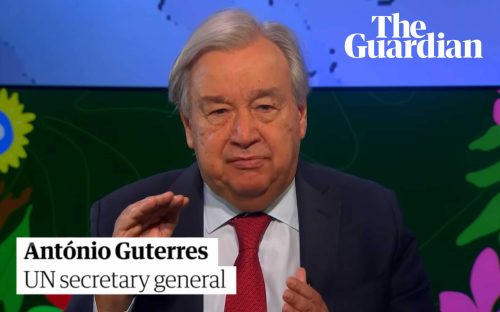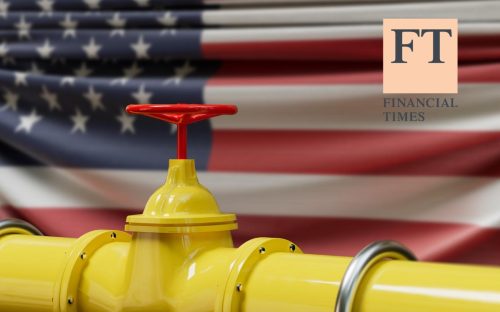PERSBERICHT
Amsterdam, 17 april 2024
- Shell noemt zetten van Parijsdoelen “schadelijk”
- Follow This: “Verantwoordelijke beleggers zullen eerder met collega’s dan met Shell meestemmen.”
Shell adviseert zijn aandeelhouders om tegen de klimaatresolutie van 27 toonaangevende beleggers en Follow This te stemmen. Het negatieve stemadvies (vandaag gepubliceerd) volgt op het schrappen van klimaatdoelen en het hoger beroep in de klimaatzaak. Het stemadvies bevestigt Shells verbetenheid om zo lang mogelijk fossiele brandstoffen te blijven verkopen.
“De afwijzing van deze redelijke vraag van 27 van zijn grootste beleggers om zijn CO2-uitstoot omlaag te brengen, toont aan dat Shell op ramkoers met het Klimaatakkoord van Parijs wil blijven,” reageert Mark van Baal, oprichter van Follow This. “De bal ligt nu bij de andere grote aandeelhouders. We verwachten dat verantwoordelijke beleggers eerder met hun collega’s dan met het bestuur van Shell zullen meestemmen.”
De klimaatresolutie vraagt het bedrijf om zijn middellange CO2-doelen in lijn te brengen met het Klimaatakkoord van Parijs. De stemmen voor eerdere klimaatresoluties stegen van 2,7% in 2016 naar 20% in 2023. Het is dit jaar voor het eerst dat Follow This een klimaatresolutie indient met een grote groep beleggers, 27 institutionele investeerders met een totaal beheerd vermogen van €4 biljoen.
Shell “gelooft” in lijn met Parijs te zijn zonder zijn totale uitstoot verder te verlagen
In zijn negatieve stemadvies kwalificeert het bestuur van Shell de klimaatresolutie als “schadelijk” (“more harmful than helpful”) en “tegen de belangen van aandeelhouders”.
Follow This: “Integendeel, het niet verminderen van de CO2-uitstoot dit decennium is tegen de belangen van de aandeelhouders met het oog op de toekomst van het bedrijf en de wereldeconomie.”
Shell spreekt zichzelf tegen door te zeggen dat het “gelooft” (“believes”) in lijn met Parijs te zijn en een resolutie die precies dat steunt “tegen het belang van de aandeelhouders” te noemen. Shell is niet in lijn met Parijs omdat het de totale uitstoot dit decennium niet verder zal terugdringen, zoals het vorige week bevestigde in zijn beroep tegen de uitspraak in de klimaatzaak van Milieudefensie (gerechtelijke stukken hieronder).
Bovendien heeft geen enkele externe bron bevestigd dat de CO2-doelen van Shell zijn afgestemd op een opwarmingsscenario van 1,5°C. “Als Shell op één lijn zat met Parijs, zouden ze hun aandeelhouders kunnen adviseren om voor deze klimaatresolutie te stemmen, in plaats van zich te verschuilen achter het woord ‘geloven’,” voegt Mark van Baal toe.
Meer info uit Engels persbericht
Lack of imagination
Shell further states in the Director’s response that further emissions reductions would “mean handing over retail and commercial customers to competitors”.
Follow This: “The board of Shell lacks the imagination to see that the company has the capital and market-making capabilities to replace fossil fuels with clean energy.”
Shell’s responses to climate resolutions
2016 : “unwise”
2017 : “unreasonable”
2018-2021: “unnecessary”
2022: “unrealistic”
2023: “against shareholder’s interests”
2024: “more harmful than helpful”
Responsible shareholders hold the key
“Large shareholders hold the key to tackling the climate crisis with their votes at shareholders’ meetings. Shell will only change if more shareholders vote for change. The climate resolution we co-filed with 27 institutional investors is designed to give Shell a shareholder mandate to drive the energy transition.”
Why votes matter
After 20% of shareholders voted in favour of the climate resolution in 2023, Shell backtracked on its 2030 climate target, and scrapped its 2035 target. Van Baal: “This demonstrates that one fifth of shareholders is not enough to drive change. Votes must increase.”
Meanwhile, Exxon is suing Follow This to stop climate resolutions from being put to a vote, demonstrating the impact of climate votes. “An increase in votes will send a strong signal to the boards of all oil majors, including Exxon’s.”
Shell’s retreat from Climate Targets
On 14 March, Shell lowered its emissions reduction target from 20% to 15-20% by 2030 and scrapped its emissions reduction target of 45% by 2035. “With this backtrack, Shell bets on the failure of the Paris Climate Agreement which requires almost halving emissions this decade,” responded Mark van Baal. “Only Shell’s shareholders can change the board’s mind by voting for our climate resolution at the shareholders’ meeting in May.”
Shell hints on moving to the US
This week, once again, chief executive Wael Sawan hinted on the possibility of moving its share listing to New York. “Wael Sawan seems to be obsessed by the share valuation gap between Shell and Exxon. He thinks he can close the gap by breaking green promises and moving to the US. However, the main reason for the share valuation gap is not the greenwashing of his predecessor or his location, but the cut in dividend by two thirds after a drop in the oil price during the pandemic.” Looking at dividend yield, the difference is around 15%.
Text Climate Resolution 2024
Shareholders support the Company, by an advisory vote, to align its medium-term emissions reduction targets covering the greenhouse gas (GHG) emissions of the use of its energy products (Scope 3) with the goal of the Paris Climate Agreement: to limit global warming to well below 2°C above pre-industrial levels and to pursue efforts to limit the temperature increase to 1.5°C.
The strategy for achieving these targets is entirely up to the board.
You have our support.
Shareholder resolution including supporting statement
Shell Court Filings
In written response to questions from the judges’ panel in Shell’s appeal to the Dutch court, Shell stated on page 25 under section 8.2.3:
English translation: “Shell expects total Scope 3 emissions to remain more or less flat until 2030, with growth in emissions from increased LNG sales offset by a decline in oil product sales, in line with Shell’s new Scope 3 category 11 ambition for oil product sales”.
Original text in Dutch: “Shell verwacht dat de totale Scope 3-emissies tot 2030 min of meer gelijk zullen blijven, waarbij de groei in emissies als gevolg van de toegenomen verkoop van LNG wordt gecompenseerd door een daling in de verkoop van olieproducten, in lijn met de nieuwe Scope 3 categorie 11-ambitie van Shell voor de verkoop van olieproducten.”
Notice of Shell’s Annual General Meeting (PDF): Notice of Annual General Meeting (page 9 and 10)










